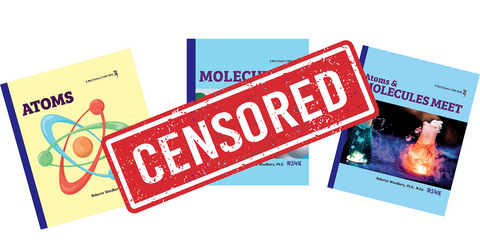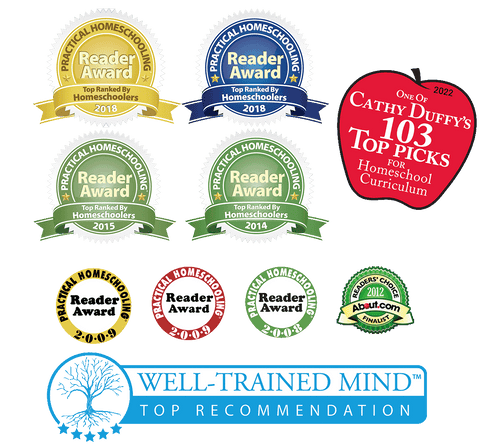When it comes to our children's education, we trust that schools are providing the best possible resources. However, a closer look reveals a troubling reality: books that align with the Next Generation Science Standards (NGSS) are the only ones allowed in many public schools. States that have adopted the NGSS use specific rubrics to approve or reject science programs, and these rubrics effectively exclude any curriculum that introduces atoms and molecules in the elementary grades. This restriction is further reinforced by EdReports, an organization that claims to independently evaluate the quality of science programs but only endorses those that align with NGSS. Both the NGSS and EdReports are funded by the same entities, raising serious concerns about the objectivity and fairness of these standards.
The Consequences of Limited Choices
- Restricted Curriculum: By mandating that only NGSS-aligned books can be used in public schools, states are limiting the scope of scientific education available to students. This means that foundational concepts like atoms and molecules are not introduced until later grades, if at all.
- Unfair Rubrics: The rubrics used by states to evaluate science programs are designed to favor NGSS alignment. This keeps out any innovative or alternative programs that might offer a more comprehensive introduction to science.
- Biased Evaluations: EdReports, which many states rely on to assess the quality of science programs, only gives high scores to those that align with NGSS. Given that both NGSS and EdReports are funded by the same sources, this raises questions about the independence and fairness of these evaluations.
The Impact on Students: The restricted use of science programs that introduce atoms and molecules in the elementary grades has significant consequences:
- Incomplete Foundation: Without early exposure to fundamental scientific concepts, students miss out on building a strong foundation that is crucial for understanding more complex topics later on.
- Delayed Learning: Waiting to introduce essential topics like atoms and molecules until later grades can hinder cognitive development and limit students' ability to grasp advanced scientific concepts.
- Reduced Opportunities: A weak foundation in science limits students' future opportunities in higher education and STEM careers, putting them at a disadvantage compared to their peers in other educational systems.
The Role of EdReports and NGSS
EdReports claims to be an independent agency that evaluates the quality of science programs, but its close alignment with NGSS standards and funding from the same sources as NGSS cast doubt on its objectivity. The same entities that fund the development of NGSS also support EdReports, leading to a potential conflict of interest that undermines the credibility of their evaluations. And by only endorsing programs that align with NGSS, EdReports excludes many potentially innovative and effective science programs from being considered in public schools.
How to Navigate This Landscape
As parents, it's essential to be proactive in ensuring our children receive a comprehensive science education. Here are steps you can take:
- Research Alternatives: Look for science programs that introduce atoms and molecules early on, even if they are not endorsed by NGSS or EdReports.
- Advocate for Change: Engage with school boards and state education departments to push for more inclusive rubrics that consider a wider range of science programs.
- Supplement at Home: If your child's school follows NGSS, consider supplementing their education with additional resources that cover fundamental scientific concepts.
Why Real Science-4-Kids Is the Best Choice
Real Science-4-Kids offers a comprehensive and engaging science curriculum that includes essential topics like atoms and molecules from an early age. Unlike NGSS-aligned programs, Real Science-4-Kids ensures that students are introduced to fundamental scientific concepts early on, building a strong foundation for future learning. The curriculum is grounded in modern cognitive research, demonstrating that young learners are capable of understanding complex concepts when taught effectively.
The current landscape of science education in public schools, driven by NGSS and reinforced by EdReports, limits the scope of what students can learn. By restricting the use of programs that introduce atoms and molecules in the elementary grades, these standards are doing a disservice to our children. As parents, it's crucial to recognize these limitations and take action to ensure our children receive the comprehensive science education they deserve.
Choose a science curriculum that prioritizes substance and comprehensive education. Equip your child with the tools they need to succeed by choosing Real Science-4-Kids. Visit Real Science-4-Kids to learn more and ensure your child receives the science education they deserve.





Comments (0)
There are no comments for this article. Be the first one to leave a message!